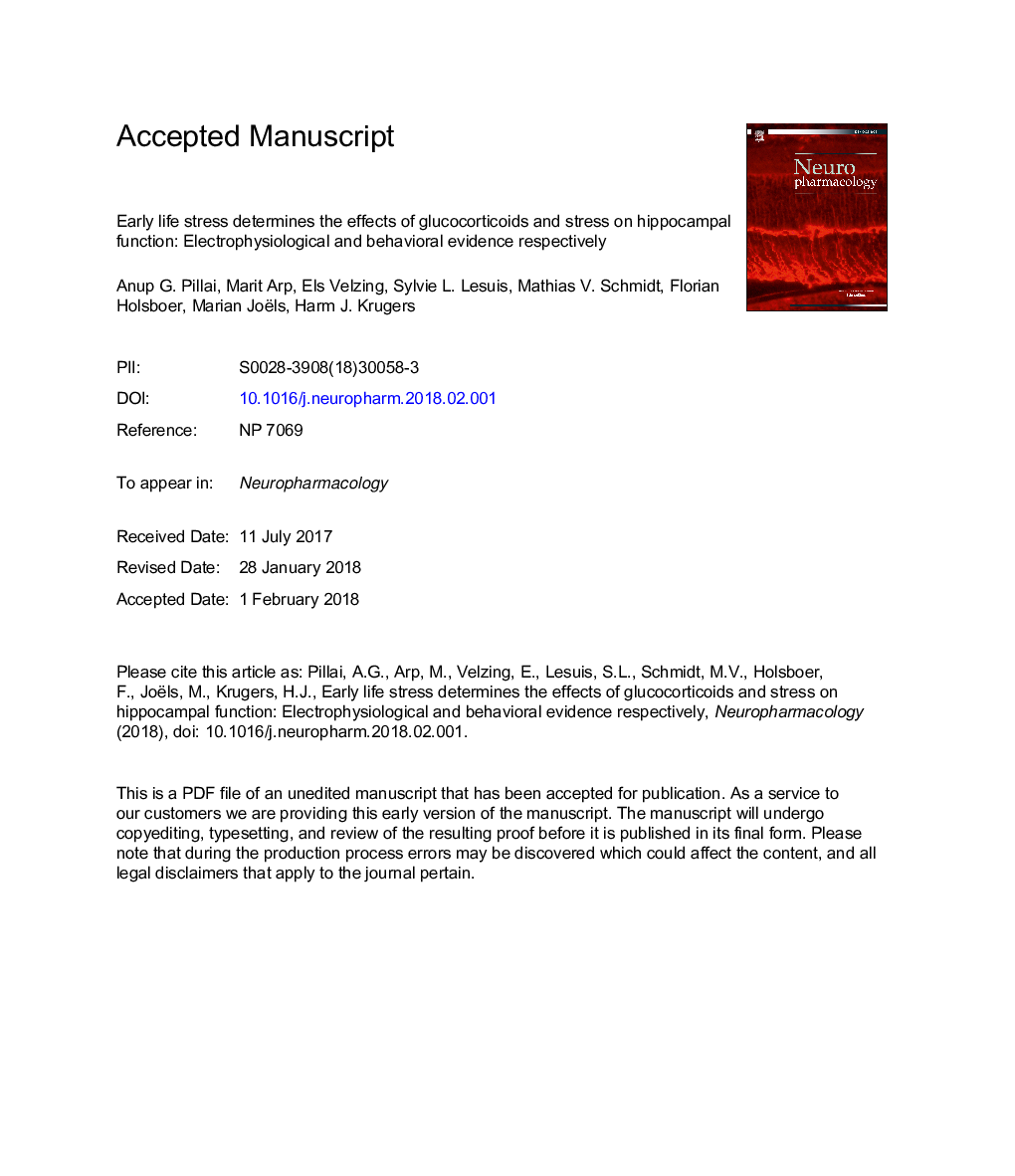| Article ID | Journal | Published Year | Pages | File Type |
|---|---|---|---|---|
| 8517030 | Neuropharmacology | 2018 | 38 Pages |
Abstract
Exposure to early-life adversity may program brain function to prepare individuals for adaptation to matching environmental contexts. In this study we tested this hypothesis in more detail by examining the effects of early-life stress - induced by raising offspring with limited nesting and bedding material from postnatal days 2-9 - in various behavioral tasks and on synaptic function in adult mice. Early-life stress impaired adult performance in the hippocampal dependent low-arousing object-in-context recognition memory task. This effect was absent when animals were exposed to a single stressor before training. Early-life stress did not alter high-arousing context and auditory fear conditioning. Early-life stress-induced behavioral modifications were not associated with alterations in the dendritic architecture of hippocampal CA1 pyramidal neurons or principal neurons of the basolateral amygdala. However, early-life stress reduced the ratio of NMDA to AMPA receptor-mediated excitatory postsynaptic currents and glutamate release probability specifically in hippocampal CA1 neurons, but not in the basolateral amygdala. These ex vivo effects in the hippocampus were abolished by acute glucocorticoid treatment. Our findings support that early-life stress can hamper object-in-context learning via pre- and postsynaptic mechanisms that affect hippocampal function but these effects are counteracted by acute stress or elevated glucocorticoid levels.
Related Topics
Life Sciences
Neuroscience
Behavioral Neuroscience
Authors
Anup G. Pillai, Marit Arp, Els Velzing, Sylvie L. Lesuis, Mathias V. Schmidt, Florian Holsboer, Marian Joëls, Harm J. Krugers,
